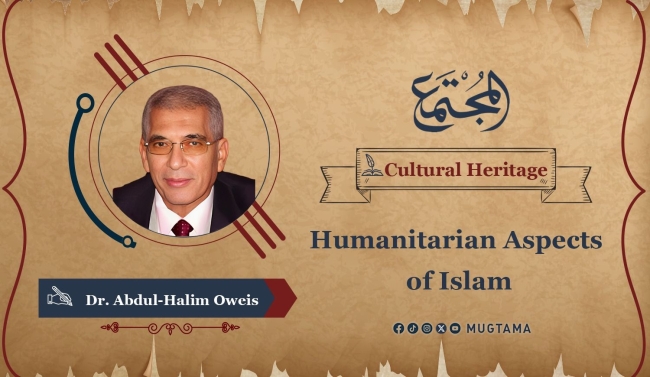Humanitarian Aspects of Islam Featured
When you read Islam—its book, its Sunnah, and its practical experiences, in both peace and war—you find that the pages of Islam’s humanitarian principles are endless!
Islam, in its message, addresses people, the children of Adam, and all of creation!
In their prayers, both obligatory and voluntary, Muslims recite the Surah Al-Fatiha dozens of times each day, which begins with the verse: "[All] praise is [due] to Allah, Lord of the worlds, the Most Gracious, The Entirely Merciful, the Especially Merciful," (Al-Fatiha: 2, 3). And when they conclude the Quran, they recite the two protective chapters, seeking refuge with the Lord of mankind and the Lord of the dawn; for their God is the Lord of the universe, life, and all people. They stand before Him as servants, like all others, without any special status unless they fulfill the conditions of piety, adhering to the standard: "Indeed, the most honorable of you in the sight of Allah is the most righteous of you" (Al-Hujurat: 13).
They are not a chosen people due to racial or ethnic factors; rather, they are "the best nation produced [as an example] for mankind" (Al-Imran: 110), tasked with divine and humanitarian duties. If they fail to fulfill these duties, even if they are from the Prophet’s own family, they are deserving of punishment in both this life and the hereafter. For if Fatimah, the daughter of Muhammad (peace be upon him), were to steal, Muhammad would cut off her hand; as their leader and role model, the Prophet Muhammad (peace be upon him) proclaimed!
From this doctrinal foundation, Muslims have charted their path, treating people—all people—with an exceedingly high standard of humanity during their periods of dominance and empowerment.
The judiciary showed no favoritism, even when the defendant was the Commander of the Faithful, Ali ibn Abi Talib (may Allah be pleased with him)!
The same was true for the "Muhtasib" (market inspector), who, like the judge, showed no favoritism!
Intellectual dialogue was open to all who held differing opinions, provided that it did not seek to destroy society or betray the civilization, the nation, or its religion.
This intellectual openness reached its peak when the dhimmi (non-Muslims under Muslim rule) published their books defending their own religions and even attacking some teachings of Islam, without facing any oppression. Instead, Muslim scholars would respond to them, as Ibn Hazm did in his rebuttal of the Jewish scholar Ibn al-Naghrilah.
As for the places of worship of non-Muslims, they were respected, and their inhabitants were not harmed, whether in peace or war. Moreover, women, elderly men, and children were not to be killed in battle unless they took up arms!
And if there were some errors, they were reactions to the transgressions of others, or they could be considered as deviations in the behavior of Muslims, judged as any anomaly would be!
In every area of peace and war, you find Islam’s humanitarian principles shining through—in its view of the universe, in its view of all humanity as the children of Adam, in its view of women and the family, in its dealings with the dhimmi, in its conduct in wars, and in all its legislations. Life cannot be sustained by law and love alone, but rather by love, virtue, altruism, and justice, humanity is achieved in a manner befitting a religion of humanity, the religion whose message Allah summarized in His words: "And We have not sent you, [O Muhammad], except as a mercy to the worlds" (Al-Anbiya: 107).
-------------------------------------------------------------







